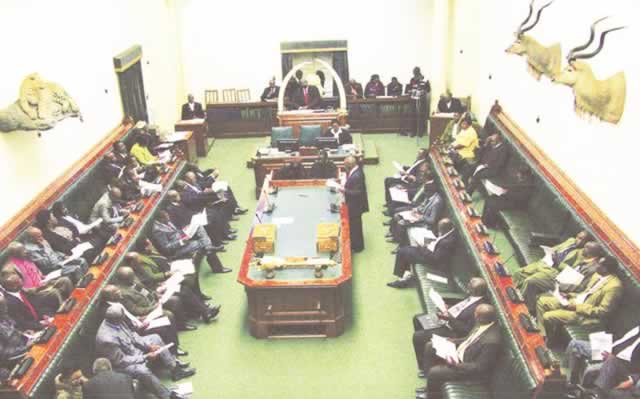‘Zim needs effective fiscal policy for SWF’

 Business Reporter
Business Reporter
Government needs to formulate sound fiscal policy and ensure effective public finance management when investing proceeds from finite natural resources to achieve sustainable economic, a paper from a local research unit noted.
The paper details part of initial efforts to interrogate what the Government needs to do when setting up a Sovereign Wealth Fund (SWF) to manage inflows from the country’s natural resources to support future economic growth.
The Government designated mining as the anchor for short to medium-term economic growth, at the same time it needs to create reserves from its exhaustible natural resources income for smooth consumption pattern over time.
According to Zimbabwe Economic Policy and Research Unit, the need for a sovereign wealth fund comes against the realisation that resource revenue are volatile and generally tied to global business cycle, so require a buffer.
“Policymakers in resource-dependent countries need to start the process of setting up a SWF by addressing the key question: How do you achieve sustainable growth when the resources are finite?” the ZEPARU noted in its report.
ZEPARU contends that the other key policy question is therefore how to transform the country’s volatile revenues from exhaustible natural resources into a smooth consumption path over generations going forward.
The Government has already gazetted the Sovereign Wealth Fund Bill meant to secure investment to cater for the economic needs of future generations. Sovereign Wealth Funds are generally defined as special investment funds created and owned by governments to hold foreign assets for long-term purposes.
But such definition of SWFs excludes foreign currency reserve assets held by monetary authorities only for the traditional balance of payments or monetary policy purposes, operations of state-owned enterprises, Government-employee pension funds, assets managed for the benefit of individuals.
SWFs are commonly established from balance of payments surpluses, official foreign currency operations, the proceeds of privatisations, fiscal surpluses, receipts from commodity exports and revenues from mineral rents.
Generally, ZEPARU said, 67 percent of funds channelled to SWFs come from minerals, 14 percent from budget transfers and the balance from other sources. Zimbabwe is endowed with an abundance of natural resources, including the world’s second largest known deposits of platinum.
According to the paper, presented at a recent inception workshop for the set up of a SWF in Zimbabwe, global SWFs are valued at about $6,5 trillion with the Abu Dhabi Investment Authority of UAE having over $1 trillion.
SWFs may be fiscal stabilisation funds set up by countries rich in natural resources to insulate the budget and economy from volatile commodity prices or fiscal savings funds are intended to share wealth across generations. They may also take the form of reserve investment corporations, which are funds established as a separate entity either to reduce the negative cost-of-carry of holding reserves or to pursue investment policies for returns.
Others are pension-reserve funds that have identified pension and/or contingent-type liabilities on governments’ balance sheets or development funds to fund priority socioeconomic projects such as infrastructure.
Key characteristics of natural resources that impact on public finances and government development policy include large and long term investments.
Funds into SWFs tend to be large relative both to Gross Domestic Product and to the government budget (so are potential tax revenues) and also usually occur where information between Government and miners is asymmetric.
International Monetary Fund staffers Hamilton and Ley (2011) believe that building wealth in resource-dependent countries through fiscal policy involves effective revenue instruments, fiscal rules to limit discretion, operation of SWFs and effective public investment management.











Comments